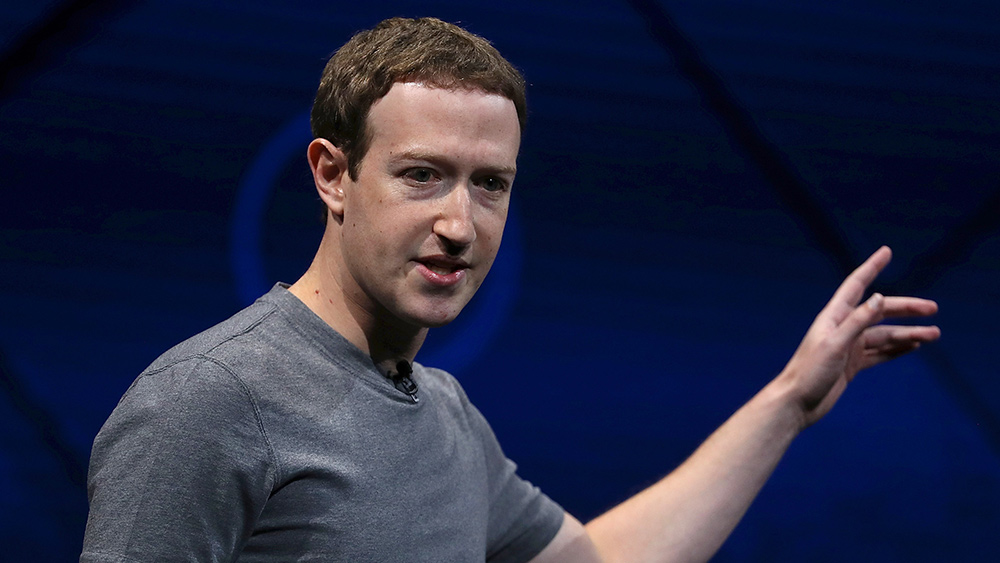WeChat facing potential BAN in Australia over repeated no-shows at government hearings
07/14/2023 / By Ramon Tomey

Messaging platform WeChat is facing a potential ban in Australia as the company repeatedly refused to appear before an inquiry by Canberra regarding foreign interference.
Federal Sen. James Paterson, who chairs the Australian Senate’s Select Committee on Foreign Interference through Social Media, aired out his thoughts in a July 11 press conference. He said the refusal of WeChat and its parent company Tencent to appear before lawmakers shows their minuscule regard for Australia’s democratic process. Tencent is tied to the Chinese Communist Party (CCP), prompting suspicion from Paterson and other legislators.
“WeChat and … Tencent continue to show contempt for the Parliament of Australia by refusing to appear, despite being now invited on four occasions. It reflects very badly on [them if] … they continue to refuse to do so,” Paterson remarked.
“Compelling evidence has been put [forward] to the committee about their behavior, including their surveillance, censorship and permissiveness for foreign interference. We have serious questions to put to them that can only be asked in the public hearing. If they continue to refuse to appear, then the committee will have to draw inferences about them and their conduct.”
According to the senator, WeChat was the only major social media company that refused to attend the hearings. This was deeply disturbing, he added, because the committee would draw conclusions based on their lack of openness. Unfortunately, WeChat has no legal presence in the Land Down Under, so Canberra has no power to compel the company to attend.
WeChat – also known by its Chinese name Weixin – is an instant messaging, social media and mobile payment app rolled into one. The app developed by Tencent was used by more than 1.2 billion active users in September 2020 alone. Around 690,000 of its daily active users are based in Australia.
Expert warns: WeChat is MORE DANGEROUS than TikTok
WeChat’s refusal to attend the hearing, alongside Paterson’s remarks, followed a warning by an expert that Tencent’s app is more dangerous than the Chinese video-sharing app TikTok.
“Everything that we fear about what TikTok may become is already occurring on WeChat,” said Seth Kaplan during an April 2023 hearing by the committee. Kaplan, a lecturer at Johns Hopkins University in the U.S. state of Maryland, also advises groups such as the United Nations, the U.S. Department of State and the Organization for Economic Cooperation and Development.
The lecturer pointed out that in WeChat, “narratives … [and] information in there is managed” and “dissenting views are demoted or eliminated.” He continued: “It’s basically a narrative machine for the CCP and what it wants to promote, similar to what actually happens in China.”
According to Kaplan, WeChat is monitoring, surveilling and developing a strong influence on the Chinese diaspora community in areas where it sees widespread use – making it vulnerable to false narratives and manipulation. He also told Australian lawmakers that he is most concerned about how the CCP is using WeChat to directly interfere in the politics of other nations’ societies.
Kaplan cited one case in Canada involving a politician from a federal district in Toronto. The said politician was critical of the CCP, leading Beijing to launch a political information campaign on WeChat. The campaign worked, causing a significant shift in the votes for the said candidate. (Related: Chinese agents caught using TikTok to manipulate midterm election in favor of Democrats.)
While the lecturer had seen such campaigns at the federal level, he had also seen them happen at the state and local levels.
“WeChat is managing information, helping to mobilize Chinese speakers, and then basically seeking coalition partners among the non-Mandarin-speaking civil society. All of this, basically, is direct interference in the politics of the country,” he said.
“Instead of your democracy being a debate among people who live in the country, there’s an additional voice that plays a large part in the conversation. And that voice is controlled by a foreign government that does not have your best interests at heart.”
Watch this video discussing how WeChat serves as the CCP’s tool to monitor and censor people.
This video is from the Chinese taking down EVIL CCP channel on Brighteon.com.
More related stories:
Aussie gov’t gives Elon Musk 28 DAYS to combat “online hate” on Twitter.
CCP blocks ChatGPT: Party officials fear chatbot will spread American propaganda online.
Sources include:
Submit a correction >>
Tagged Under:
Australian Senate, banned, big government, China, Chinese Communist Party, computing, conspiracy, cyber war, deception, foreign interference, Glitch, information technology, James Paterson, national security, privacy watch, propaganda, rigged, Seth Kaplan, Social media, spy gate, surveillance, tencent, wechat
This article may contain statements that reflect the opinion of the author
RECENT NEWS & ARTICLES
COPYRIGHT © 2017 INFORMATIONTECHNOLOGY.NEWS



















